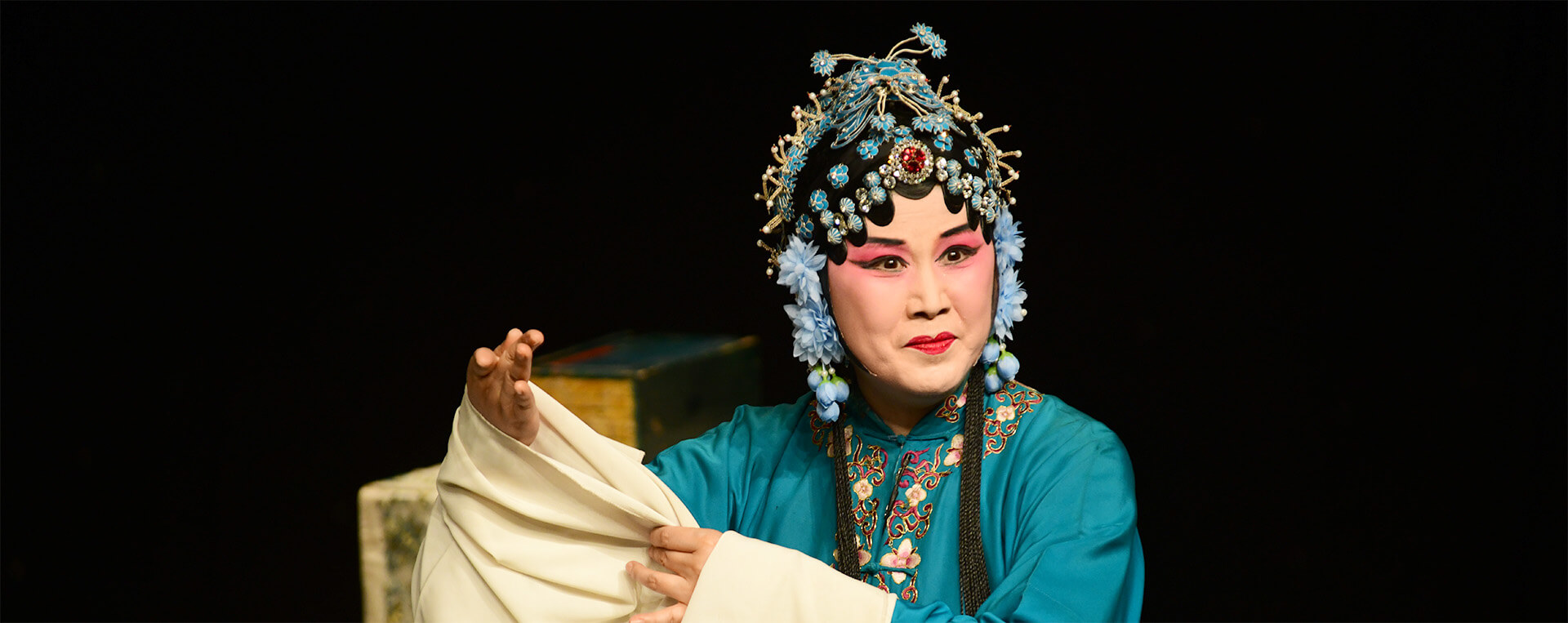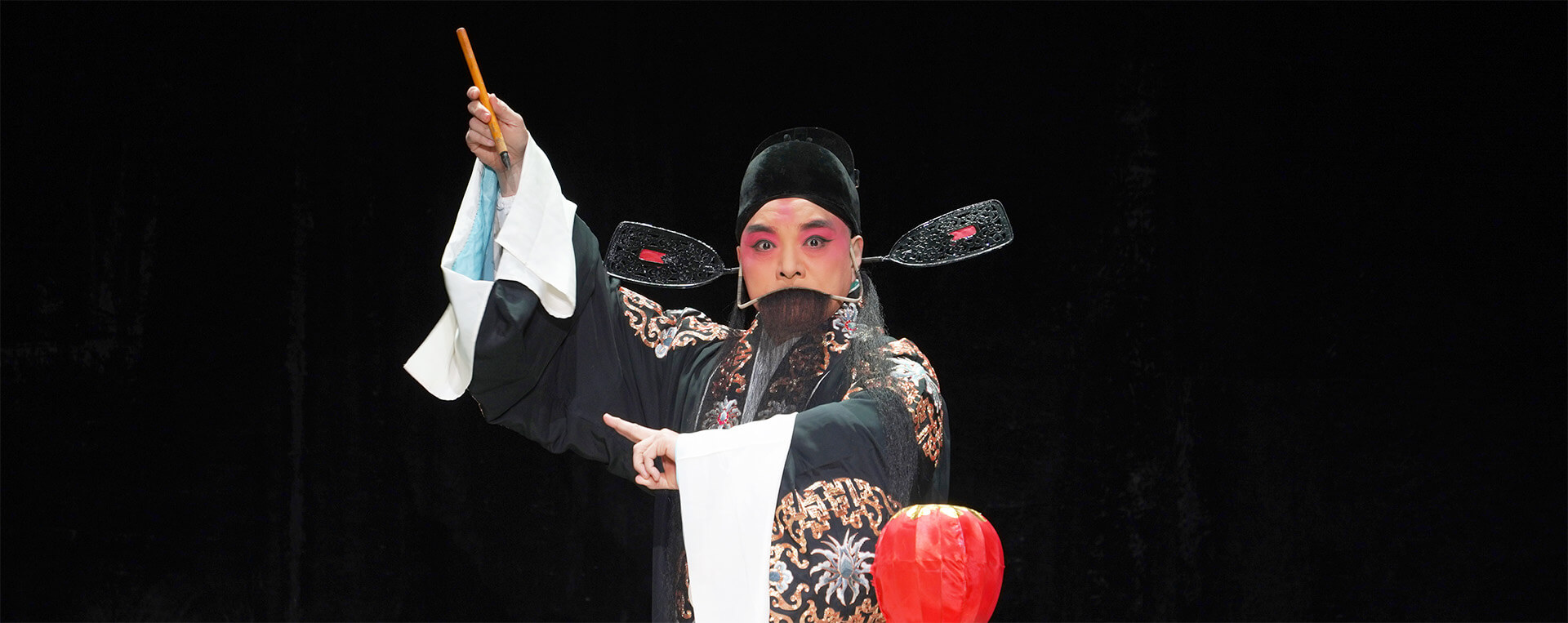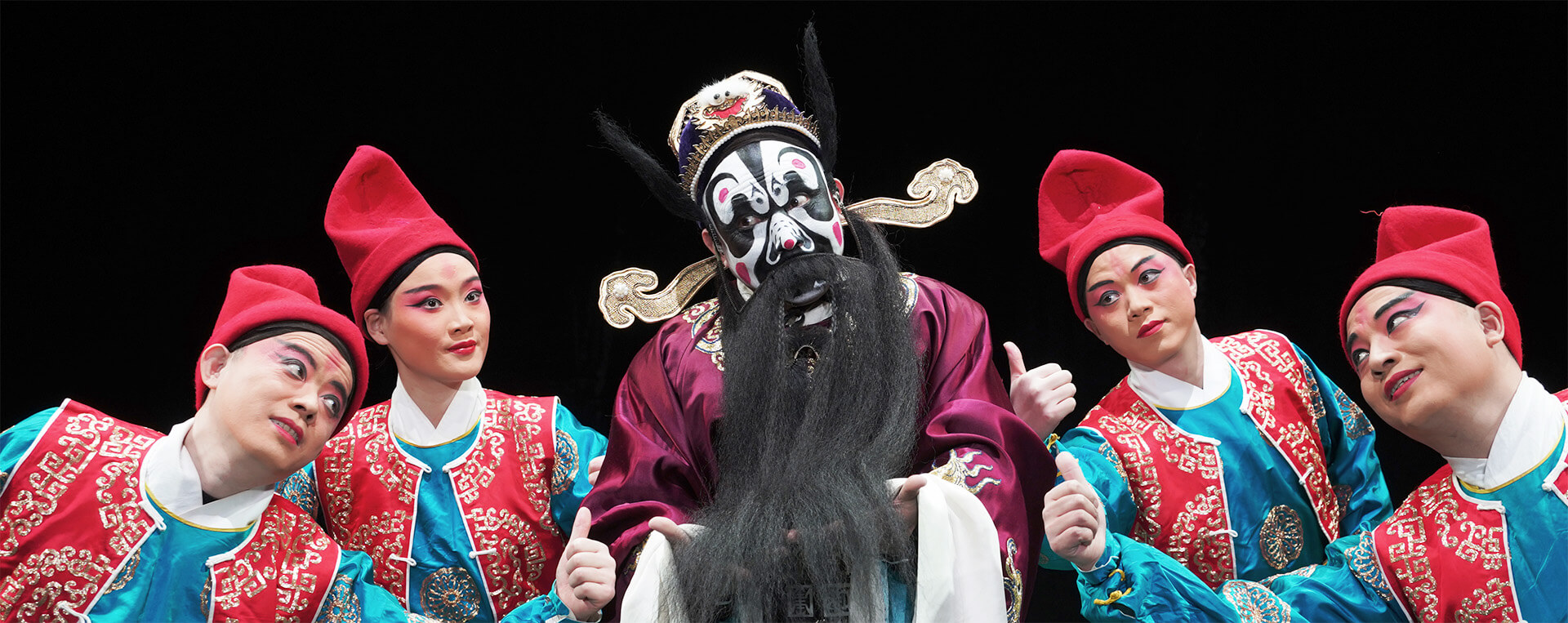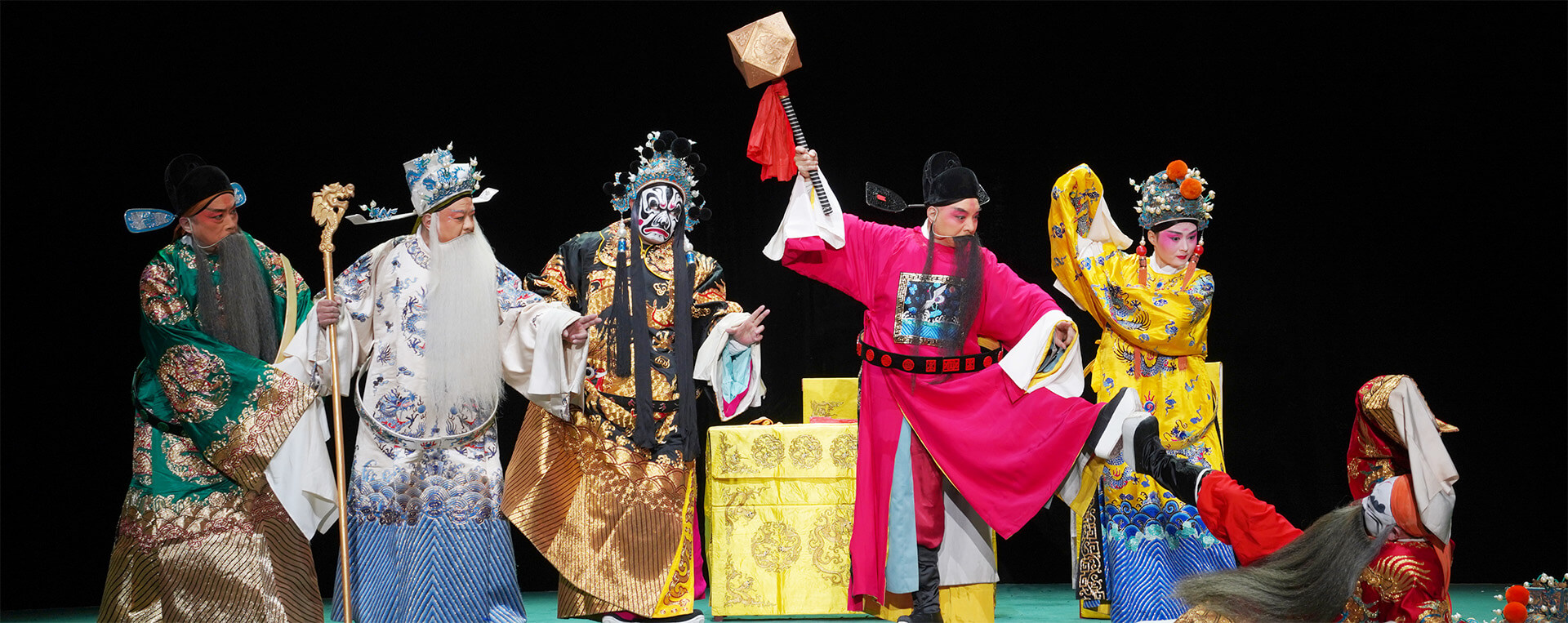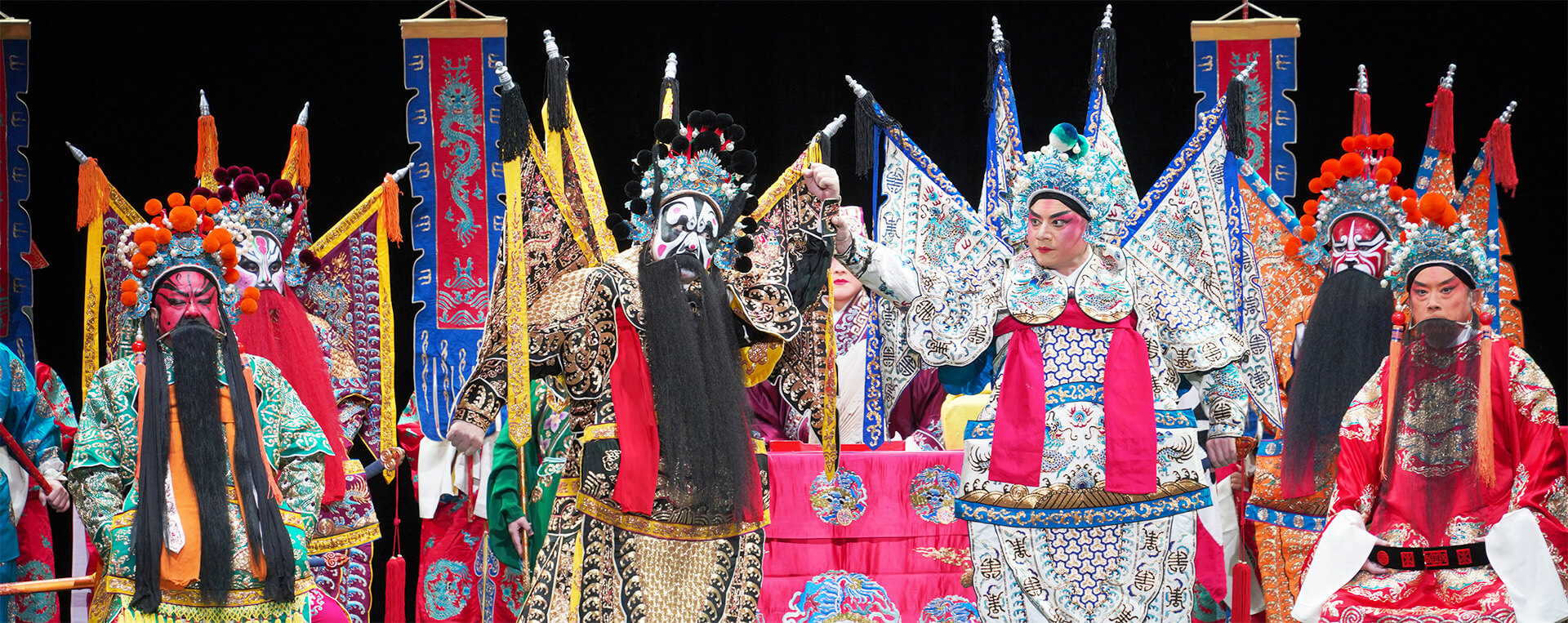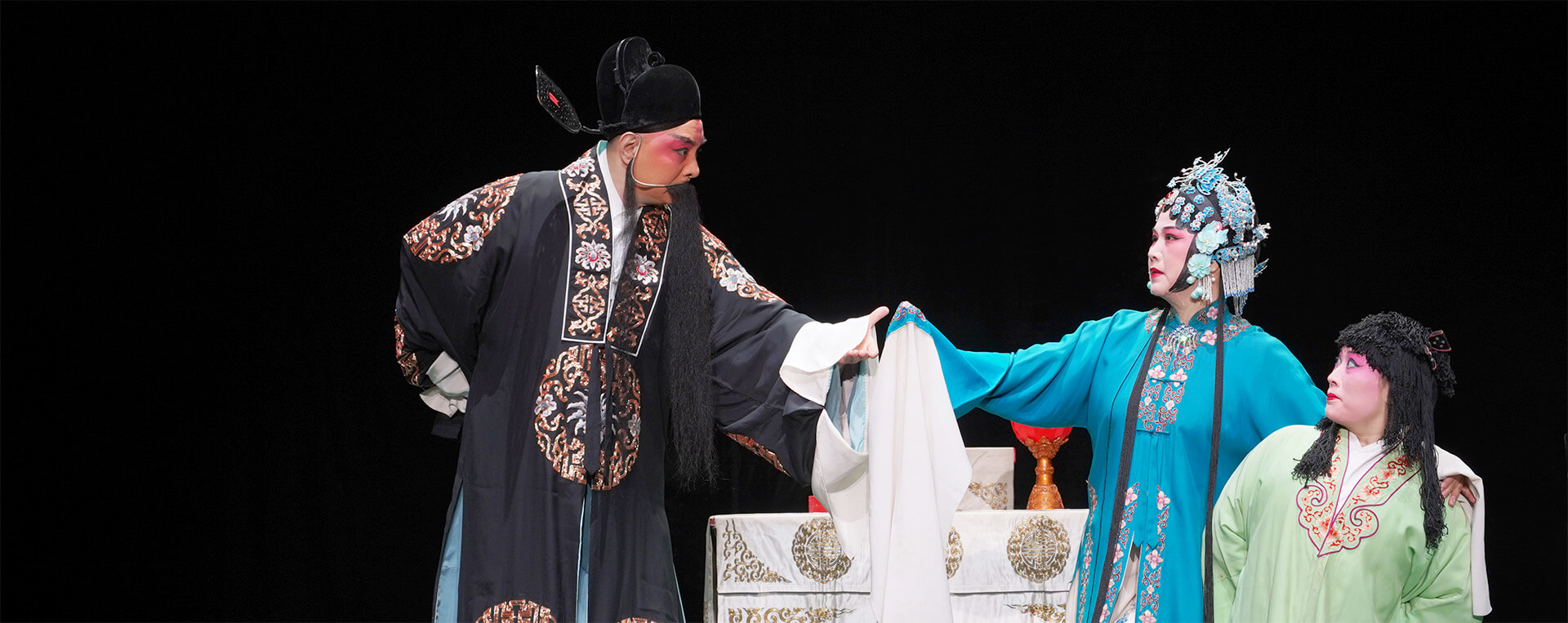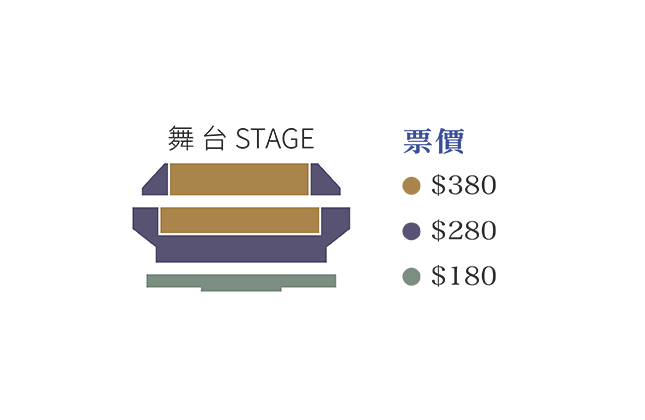

5 - 6/7 (Fri-Sat) 7:30pm
Auditorium, Ko Shan Theatre New Wing
With Chinese and English surtitles.
Members of the audience are strongly advised to arrive punctually. Latecomers and those who leave their seats during the performance will only be admitted and allowed to return to their seats respectively during the intermission or at a suitable break.
Enquiries: 2268 7325 (Programme) /
3166 1100 (Ticketing)
Booking: 3166 1288 / www.urbtix.hk



In the early days of the Qing dynasty, there were mainly four vocal styles in Chinese opera, known as Kun (Kunqu) of the South, Yi (Yiyang) of the North, Liu (Liuzi) of the East and Bang (Bangzi) of the West, in which, Liu/Liuzi means Liuzi Opera. Liuzi Opera has a history of nearly 600 years, and has important value for research on Chinese opera music during the Ming and Qing dynasties. The one and only professional performing group of the genre, the Centre for the Safeguarding of Liuzi Opera of Shandong, received well acclaim for its performances in Hong Kong in 2007, will return this year with its best cast and repertoires.
Based on a story from Romance of the Three Kingdoms, the Liuzi Opera full-length play Zhang Fei Crashing the Palace Gate is taken from the climax of the work, showing how the brusque but likeable general Zhang Fei is won over by the brilliant strategist Zhuge Liang. Another representative work of Liuzi Opera, Sun An Presenting Memorials is set in the Ming dynasty. It tells the story of Sun An, a local official, petitioning the emperor thrice to impeach the evil grand preceptor Zhang Cong. Vivid portrayals of the characters performed by National Class One performers Wang Wei, Chen Fengying and Li Weiguo and others, perfectly demonstrate the explicit charm of regional operas.
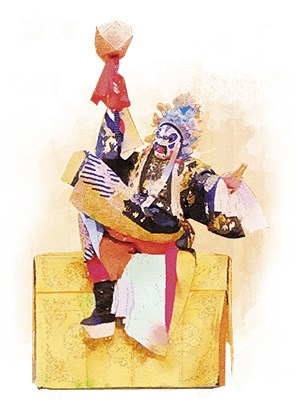

5/7 7:30pm
Zhang Fei Crashing the Palace Gate
Zhang Chunlei (1904 - 1975), a famous actor who played hualian (painted face) roles in Liuzi Opera, was known for his signature piece - Zhang Fei Crashing the Palace Gate. He was hailed as the 'living Zhang Fei' for his thunderous and grinding voice, mostly in falsetto. Wang Wei, the lead actor in the new version of Zhang Fei Crashing the Palace Gate, is trained in Zhang's iconic style. His exquisite, high-pitched singing and vivid, flamboyant acting bring immediacy to the character he portrays. In the excerpt Keeping Xu Shu, Zhang Fei realises that he has wronged Xu Shu and sees him off in tears. In Visiting the Cottage, he carries the sedan chair prepared for Zhuge Liang, dressed in his full official attire to indicate his respect. The climax of the story is Crashing the Palace Gate. With the longhorn blaring and percussion clapping, Zhang Fei rises above the din with his falsetto singing, thus enhancing the dramatic moment.
Main Cast: Wang Wei, Hou Pengtao, Zhou Jinwei, Zhang Zhongqiu, Chao Dahai, Peng Yanhui
6/7 7:30pm
Sun An Presenting Memorials
Sun An Presenting Memorials is a play that has been adapted from the traditional Liuzi Opera Three Memorials, also known as Xu Long's Rampage in Court. Both plays are famous for their suspenseful storytelling. Sun An Presenting Memorials has been adapted into various genres of Chinese opera like Peking Opera, Yue Opera, and Qinqiang since it was made into a film in 1962. Its impact is comparable to that of Fifteen Strings of Cash in Kunqu Opera. In the current production, the iconic hualian (painted face) role is played by Zhou Jinwei, a third-generation actor specialising in this repertory. He performs the set tune Zanzi in a robust vocal style that befits the aged character. Zhou Jinwei is joined by Chen Fengying, who plays Sun's wife, and Wang Wei, who plays Xu Long. Together, the three actors have given a fresh burst of youthful energy to this old genre.
Main Cast: Zhou Jinwei, Chen Fengying, Wang Wei, Li Weiguo, Chen Yanmiao, Chao Dahai, Zhang Zhongqiu
The running time of each performance is approximately 2 hours and 30 minutes including an intermission of 15 minutes.


Liuzi Opera
In the early days of the Qing dynasty, Chinese opera was characterised by four main vocal styles: Kun (Kunqu) of the South, Yi (Yiyang) of the North, Liu (Liuzi) of the East and Bang (Bangzi) of the West. In other words, Liuzi Opera, also known as Xianzi Opera, has nearly 600 years of history and is a regional genre popular in areas such as Shandong, Henan and Hebei. It is recognised as one of China's Intangible Cultural Heritage at National Level.
Liuzi Opera originated from popular vernacular songs and short tunes during the Yuan, Ming and Qing dynasties, blending the robust style of the North with the graceful, delicate features of the South. The lyrics extol naturalness and simplicity to maintain a rich vernacular touch. With folk tunes and Liuzi tones as the main vocal styles, the singing patterns exhibit a feminine charm and varied shifts. The accompaniment is mainly provided by the two wind instruments, qudi and sheng, and the string instrument xiao sanxian. With its comprehensive repertory of set tunes, Liuzi Opera is valuable for the study of Chinese opera of the Ming and Qing periods.
Each role type has its own unique characteristics, particularly the formulaic performances of the jing (painted face) roles, which are bold and vigorous, evoking the straightforward and heroic nature often associated with people from Shandong province. Liuzi Opera reveals the subtle connections between cultural arts and local customs, making it richly intriguing.



